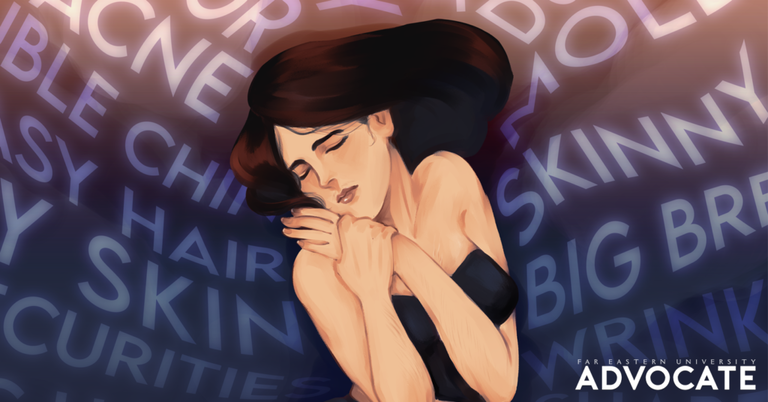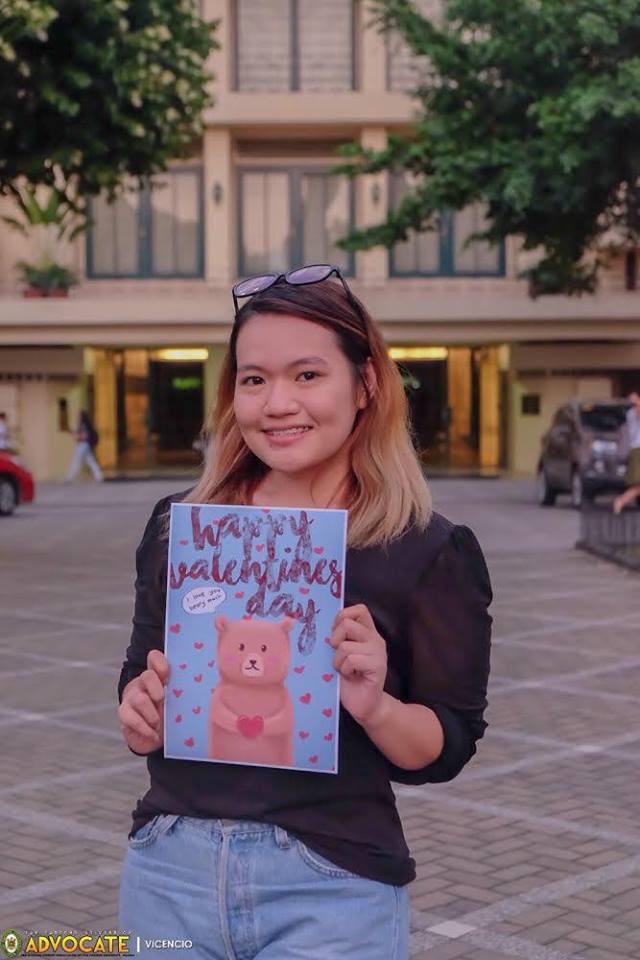
Nazarene festivities end early in 16 hours
- January 10, 2020 14:27
FEU Advocate
September 01, 2021 09:18

During these unprecedented times, taking care of oneself is essential, but it has been difficult for some to maintain a decent routine. More than ever, the importance of a self-care routine is needed to ensure one’s health is at its best, however, it is not a one-size-fits-all.
Recently, Belo Medical Group released a video advertisement titled #PandemicEffect, which sparked a huge commotion online—with numerous people criticizing how women are forced to conform to beauty standards during a global health crisis. While the advertisement recognized the dangerous effects of stress and the importance of self-care, many women were offended by its overall message—which capitalizes on their deep-rooted insecurities.
As shown in the video, the woman gradually develops acne, gains weight, and grows body hair, all of which are considered unattractive by society—while listening to the news about the pandemic, exaggeratedly depicted in a span of sixty seconds for humor's sake. When the woman turned off the television, her friend called and asked, "anong nangyari?" seemingly shocked by her new appearance. The video ends by stating that "tough times call for beautiful measures."
What went wrong
Some may think that the advertisement is harmless and is just another smart marketing strategy by a company that wishes to sell its goods and services. However, given that the youth is at the forefront of bringing change in society, people are more receptive to sensitive topics such as negative self-image.
Janina Alcantara, the Finance Officer of Young Women's Christian Association (YWCA) - FEU Chapter and 2nd year Marketing Management student, said she felt triggered by the advertisement.
“So in the first half nung video, parang habang pinapanood ko, ayoko na siya i-continue eh kasi nasasaktan ako. And honestly, not to be dramatic naman, pero parang na-trigger talaga ako kasi naalala ko yung mga times na mino-mock ako dahil sa body na meron ako (So in the first half of the video, while I was watching it, I didn’t want to continue it because it hurt my feelings. And honestly, not to be dramatic, but I was really triggered because I remember those times when people were mocking me because of my body)” she shared in an interview with FEU Advocate.
For Cheneline San Pedro, a 3rd year Nursing student and Deputy Head of Events at the Institute of Nursing Student Council (INSC), the advertisement can pose some debilitating effects to people who deal with insecurities and self-esteem issues.
"I acknowledge the importance of taking good care of yourself and being in tip-top shape, not only for aesthetic purposes but also healthwise, which is very important nowadays. But you know, you don't want to grow up in a society wherein these types of beauty norms are inflicted on you because it's so hard to keep up. It's so hard to maintain these toxic societal norms that we have—and that's why I believe we should really break these toxicities," she said.
Staying at home can be lonely and distressing, and some are having a hard time keeping up with their beauty regimes and maintenance; hence, gaining weight, developing acne, and other visible signs of stress are normal—and if a woman chooses to be more comfortable with her own skin, then she should not be mocked for embracing the nature of her own body.
Truly enough, the pandemic has affected everyone in numerous ways—which can manifest not only in our physical appearance but also in our overall health. Moreover, women are pressured to follow these ridiculously high standards—many of which are unattainable. People are quick to pick out and judge one's appearance just because it does not fit in the ideals that society has placed on us, especially on women. Consequently, these ideals can have detrimental effects on our mental health—as if we view ourselves from a distorted lens that inhibits us from appreciating our true, authentic selves.
Redefining beauty norms
Meanwhile, the Belo advertisement has shed light on more open discussions when it comes to redefining beauty norms and proper representation of women in the media.
Both Alcantara and San Pedro think that there could have been a better way to promote Belo Medical Group's services without having to shame and mock their target audience.
“They could have just done an advertisement na kung saan nag po-portray ng babae na nagpa-retoke or nagpa-ganda, and that woman is telling the viewers how she felt after the beauty procedure (They could have just done an advertisement where they portray a woman who underwent surgery or a beauty procedure, and that woman is telling the viewers how she felt after the beauty procedure)” Alcantara said.
"It could have just been a matter of choice with the audience and the consumers on how they argue, deal, or embrace the changing process that we are to experience as we course through life. That regardless, if they were to avail of beauty service and enhancement, they are once again beautiful just the way they are," San Pedro said.
Additionally, San Pedro believes that beauty companies and brands should focus on inclusivity and more representation instead of forcing people to avail these services.
The video was later taken down, while Belo Medical Group and Gigil, the ad agency behind the concept of the video, released their public apologies through social media.
After all, the pandemic effect is more than physical appearance. While it is common to be concerned about the way we look, it should not take away from taking care of ourselves in a holistic approach—as good health is more important during these challenging times. It is only fitting that we practice self-care through eating healthy food, getting enough sleep, and doing exercises. Most importantly, it is crucial to do what works for each individual—what makes us more confident with ourselves.
Living in a pandemic is already taxing, especially for one’s overall well-being. There is nothing wrong with enhancing our body features, as long as it makes us comfortable and happy, rather than being pressured to follow what society deems as conventional.
- John Vincent Cruz
(Illustration by Maria Margarita Corazon Rivera/ FEU Advocate)









